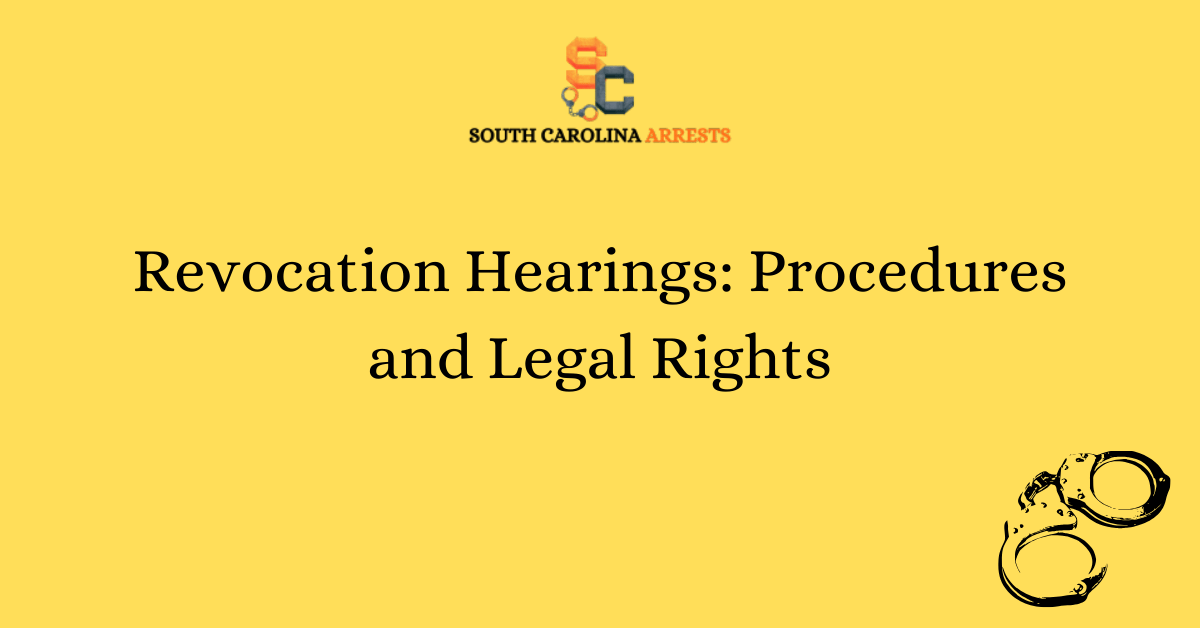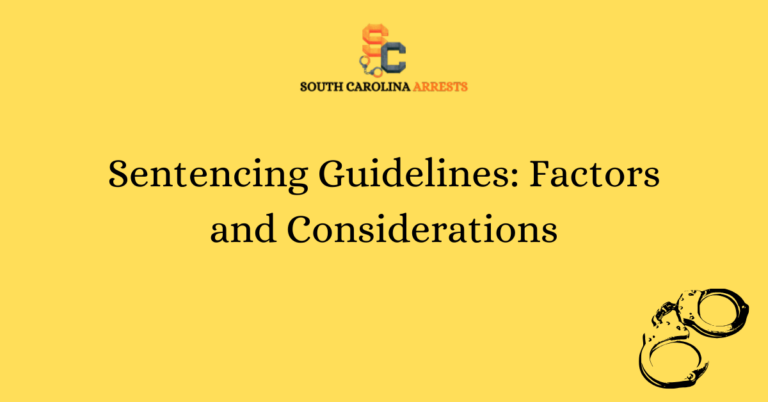Revocation Hearings: Procedures and Legal Rights
Revocation hearings are crucial legal proceedings that determine the status of an individual’s rights. These hearings follow specific procedures outlined by the law to ensure fairness and justice. Understanding the intricacies of revocation hearings is essential for anyone involved in the legal system.
Legal rights play a significant role in revocation hearings, shaping the outcome of the process. By delving into the procedures and legal rights involved, individuals can navigate these hearings with confidence and clarity. Stay informed about revocation hearings to protect your rights and uphold justice.
Understanding Revocation Hearings
Revocation hearings are legal proceedings that determine whether an individual has violated the terms of their probation or parole. These hearings are crucial in ensuring accountability and upholding the integrity of the justice system. Understanding the intricacies of revocation hearings is essential for both the individual facing the hearing and their legal representation.
Importance of Legal Procedures
Legal procedures play a vital role in revocation hearings as they ensure that the rights of the individual are protected throughout the process. By following established procedures, the integrity of the hearing is maintained, and all parties involved can trust in the fairness of the outcome.
Key Steps in Revocation Hearings
The key steps in a revocation hearing include notifying the individual of the alleged violations, presenting evidence to support the allegations, allowing the individual to refute the claims, and ultimately making a decision based on the facts presented. Each step is crucial in ensuring a fair and just outcome.
Know Your Legal Rights
Individuals facing revocation hearings must be aware of their legal rights and how to exercise them during the proceedings. From the right to legal representation to the right to present evidence in their defense, understanding these rights can significantly impact the outcome of the hearing.
Role of Legal Rights in Hearings
Legal rights play a critical role in revocation hearings as they serve as a safeguard against unfair treatment and ensure that due process is followed. By asserting their rights, individuals can navigate the hearing with confidence and increase their chances of a favorable outcome.
Impact on Hearing Outcomes
The exercise of legal rights can have a significant impact on the outcome of revocation hearings. By leveraging their rights effectively, individuals can present a strong defense, challenge any inconsistencies in the evidence presented against them, and ultimately influence the decision of the presiding authority.
Navigating Procedures with Confidence
Confidence in navigating the procedures of a revocation hearing is essential for a successful outcome. By understanding the steps involved, knowing their rights, and being proactive in their defense, individuals can approach the hearing with confidence and increase their chances of a fair resolution.
Stay Informed for Justice
Staying informed about revocation hearings and the legal rights involved is crucial for ensuring justice is served. By educating themselves on the process and their rights, individuals can protect themselves from unfair treatment and uphold the principles of fairness and accountability.
Protecting Your Rights
Protecting your rights in a revocation hearing is paramount to securing a just outcome. By asserting your rights, seeking legal representation, and actively participating in the proceedings, you can ensure that your voice is heard and your rights are upheld.
Upholding Fairness in the System
Upholding fairness in the revocation hearing system is essential for maintaining trust in the justice system. By adhering to legal procedures, respecting the rights of individuals, and ensuring transparency in decision-making, the system can uphold its integrity and deliver justice effectively.
Frequently Asked Questions
Here you will find answers to common questions and detailed information regarding Revocation Hearings: Procedures and Legal Rights.
What is a revocation hearing?
A revocation hearing is a legal proceeding where a court reviews whether a person has violated the terms of their probation or parole and determines if their supervision should be revoked.
What happens during a revocation hearing?
During a revocation hearing, the individual will have the opportunity to present evidence, witnesses, and arguments to defend themselves against the alleged violations. The judge will then make a decision based on the evidence presented.
What are the legal rights of an individual during a revocation hearing?
Individuals have the right to be represented by an attorney, the right to present evidence and witnesses on their behalf, the right to cross-examine witnesses, and the right to appeal the decision of the revocation hearing.
What are common reasons for a revocation hearing?
Common reasons for a revocation hearing include failing drug tests, not reporting to a probation officer as required, committing new offenses, or violating any other conditions of probation or parole.
Can an individual appeal the decision of a revocation hearing?
Yes, individuals have the right to appeal the decision of a revocation hearing. This can be done through the court system by filing an appeal with the appropriate appellate court.
How long does a revocation hearing process take?
The length of a revocation hearing process can vary depending on the complexity of the case, the availability of witnesses, and other factors. In general, it can take several weeks to months to complete the entire process.







